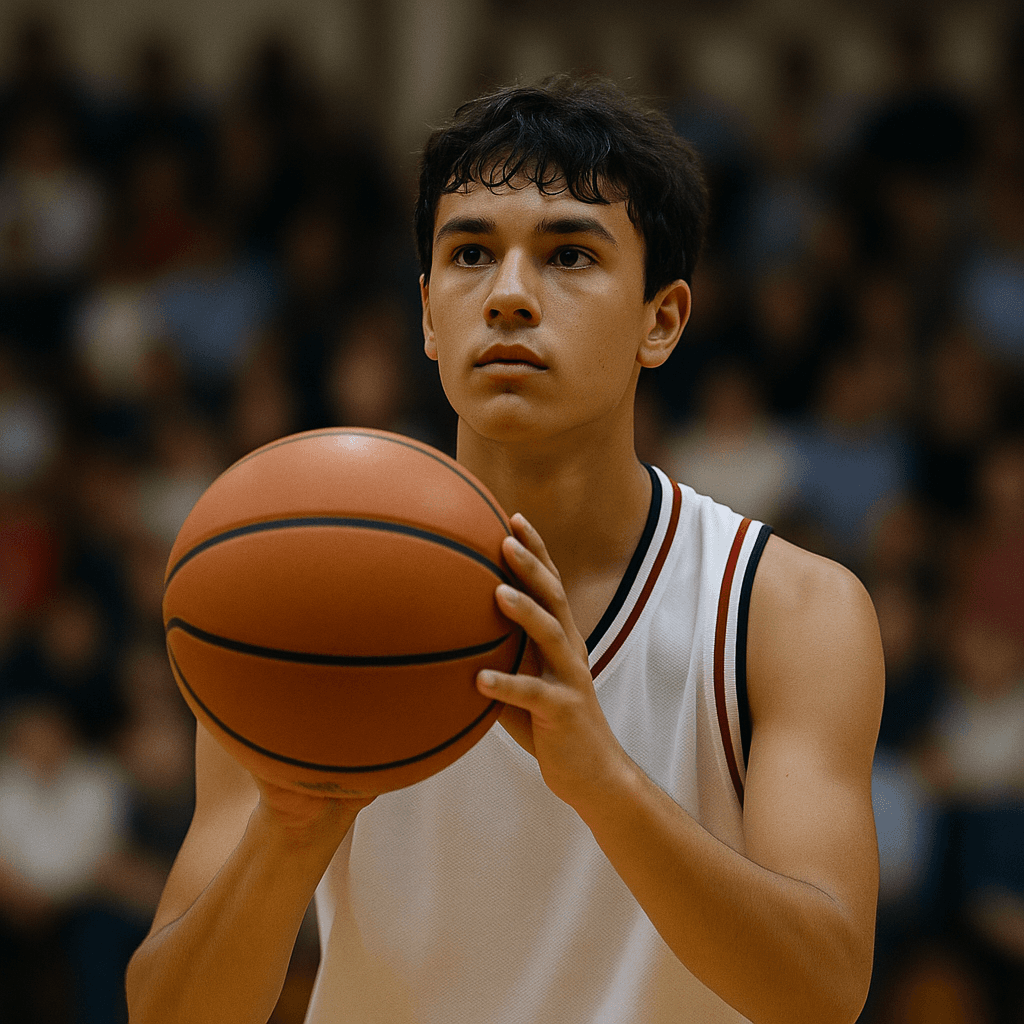
Mental Toughness
A young basketball player stays calm and focused at the free throw line, demonstrating mental toughness in a pressure moment.
Basketball Mental Toughness: Staying Strong Under Pressure
Basketball is not just a physical game—it’s also a mental battle. Players face tough opponents, loud crowds, bad calls, and high-pressure moments. Mental toughness is what helps athletes stay calm, focused, and confident no matter what is happening on the court.
This guide explains what mental toughness means in basketball, why it matters, and how to develop it through practice and mindset training.
Why Mental Toughness Matters
Basketball games are full of challenges. Players miss shots, turn the ball over, or find themselves guarding stronger opponents. Without mental toughness, mistakes can pile up and shake a player’s confidence.
Benefits of Mental Toughness
- Stay calm under pressure – make good decisions even in close games
- Bounce back from mistakes – recover quickly after a turnover or missed shot
- Handle adversity – stay confident even against bigger, faster, or more skilled opponents
- Lead by example – mentally tough players inspire their teammates
Problems Without Mental Toughness
- Losing focus after a bad call or mistake
- Struggling to perform in clutch moments
- Letting opponents get in your head with trash talk
- Giving up too quickly when tired or behind
Key Traits of Mentally Tough Players
Confidence
Believing in yourself and your skills, even when you miss shots or make mistakes.
Focus
Blocking out distractions like the crowd, pressure, or trash talk.
Resilience
The ability to bounce back from challenges and keep pushing forward.
Composure
Staying calm and controlled, especially in big moments.
Mental Toughness Training Strategies
Visualization
Picture yourself making shots, playing strong defense, and staying calm in high-pressure moments. This builds confidence before games even begin.
Positive Self-Talk
Replace negative thoughts (“I can’t guard this player”) with positive ones (“I’ll use my speed and footwork to stay in front”).
Breathing Techniques
Take deep breaths before free throws, after turnovers, or during timeouts to stay calm and reset your mind.
Challenge Practice
Put yourself in tough practice situations—like running drills when tired or simulating game-winning shots—to prepare for real pressure.
Team Accountability
Encourage teammates and hold each other responsible for effort, focus, and attitude.
Drills for Mental Toughness
Pressure Free Throws
Shoot free throws after running sprints to mimic game fatigue. Add a consequence (extra sprints if missed) to build focus.
Noise Drill
Have teammates make noise or distractions while you shoot or handle the ball. This trains focus under pressure.
Game-Winning Situations
Set up scrimmages where your team is down by a few points with one minute left. Practice staying calm, making smart plays, and finishing strong.
Common Mistakes to Avoid
- Focusing only on physical skills – ignoring the mental side of basketball
- Letting mistakes pile up – one missed shot doesn’t define a game
- Getting frustrated with refs or opponents – losing composure costs your team
- Quitting when tired – the mentally tough player pushes through
Final Takeaway
Mental toughness is what separates good players from great players. It’s the ability to stay confident, focused, and composed even when the game is tough. By practicing visualization, positive self-talk, breathing, and high-pressure drills, you can train your mind just like you train your body.
Players who are mentally tough not only improve their own performance but also lift up their teammates and give their team the best chance to win.